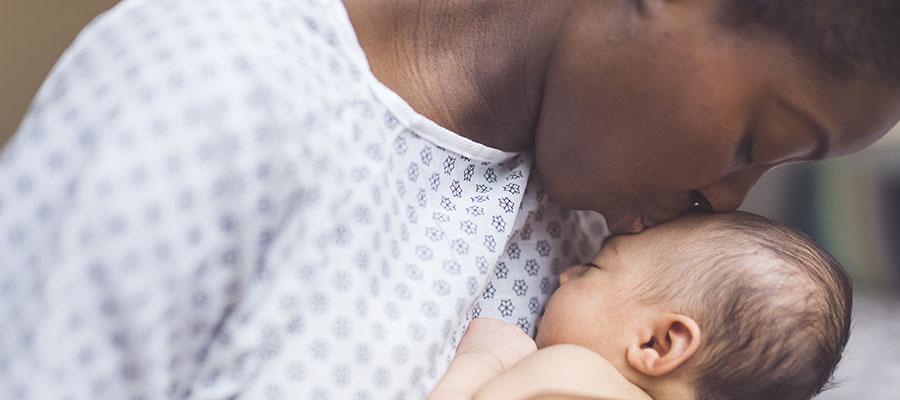Supporting new moms in the time of COVID-19

While COVID-19 has impacted routine medical visits and non-emergency procedures, people are still giving birth and in need of support. Across the country, hospitals and health systems are implementing COVID-19 response plans that are shaping birth plans and experiences for expectant mothers and their families. This includes virtual appointments for routine prenatal care and potentially limiting support persons during labor and delivery.
Post-delivery discharge also is being impacted. Prior to the pandemic, the average length of stay after giving birth in a hospital was about 48 hours, assuming a vaginal birth with no complications. Currently, to minimize the risk of exposure to COVID-19, mothers and babies may be discharged 12 to 24 hours post-delivery in areas experiencing a surge. Ensuring mothers and their newborns receive the proper postnatal care and access to support networks is as vital as ever.
Traditionally, essential communication and links to support networks, including information on signs of postpartum depression, baby care and lactation support, occur during the 48-hour post-delivery stay. In a recent Institute for Healthcare Improvement (IHI) Better Maternal Outcomes Community Connections call, clinicians and birth support partners alike cited an urgent need for patient and family-facing resources to support postpartum mothers during the COVID-19 pandemic. Current guidelines around physical distancing may contribute to feelings of isolation and elevate the risk factors for postpartum depression and anxiety. It is critical to connect new mothers to support networks and provide appropriate resources.
Lucile Salter Packard Children’s Hospital, in a webinar with other collaborators of the California Perinatal Quality Collaborative and California Maternal Quality Care Collaborative, stressed the importance of assessing the emotional and mental health of new parents upon discharge and in follow-up visits. To support parents who may feel isolated, families are offered resources on ways to address grief and anxiety and encouraged to develop plans for getting groceries and when to sleep.
Virginia Commonwealth University Medical Center is providing helpline support until their Getting Better Together support group is able to meet in person again. Additionally, hospitals like Lompoc Valley Medical Center are offering online information and support to postpartum mothers during COVID-19, including recommendations to keep postpartum appointments by telemedicine instead of in-person, if possible.
We invite you to explore the resources identified during IHI’s Better Maternal Outcomes Community Connection call and through AHA’s COVID-19 Maternal and Child Health Resource Guide, which shares ways hospitals and health systems are caring for mothers and babies during the COVID-19 crisis.
With all of the complexities and implications of the COVID-19 pandemic on maternal and infant health, our ultimate goal remains the same: a healthy mom and baby dyad. IHI and AHA will continue to collect helpful resources to help new mothers access peripartum support as the pandemic continues to unfold. If your organization has developed helpful resources to support women, we invite you to share them below or by emailing maternalhealth@ihi.org and gtrainor@aha.org.
Ginny Trainor, LCSW, is program director of Strategic Initiatives at AHA, and Catherine Mather, MA, serves at project director at IHI.

